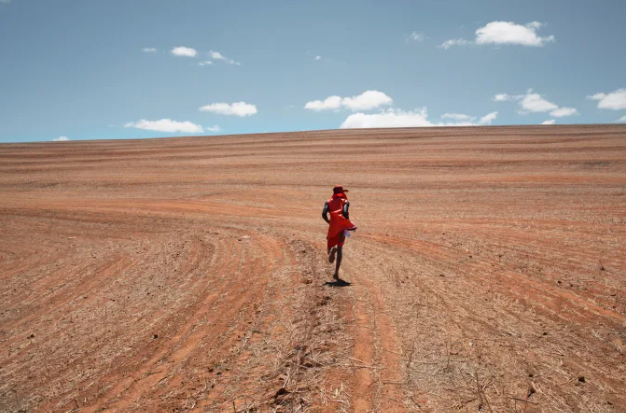Fashion designer reinvents ancient technique
By Ony Nwaohuocha and Sophie Morlin-Yron, CNN
Bringing Ancient Yoruba Designs to the Modern World
Nigerian fashion brand Ethnik is reinventing ancient Yoruba designs, incorporating them into contemporary accessories such as bags and shoes. These pieces feature locally sourced wool and are crafted using traditional Yoruba weaving methods.
The techniques and fabrics are inspired by the Yoruba people of West Africa, who are predominantly found in Benin and Nigeria. While Yoruba handwoven fabrics were once used for everyday clothing, they are now reserved for special occasions like weddings and festivals.
Preserving Tradition Through Fashion
Ethnik’s accessories are made using Aso Oke, a traditional handwoven wool fabric technique. The company takes pride in empowering artisans to continue the practice of traditional weaving while incorporating the fabric into modern designs.
Each shoe is uniquely designed and sells for between $75 and $100 per pair, according to the company.
Founder and designer Tunde Owolabi, who established the company in 2015, hopes his creations will help people connect with Yoruba heritage.
“I'm Yoruba, so I needed to go back to my roots,” Owolabi says.
Founder Tunde Owolabi, center, hopes to take Ethnik to international runways in 2017.
Sourcing Materials & Growing the Business
The wool used in Ethnik’s collections is locally sourced and dyed using natural ingredients such as tree bark. The brand’s bags, shoes, and accessories are handmade in Lagos by local craftsmen.
With an initial capital of just $84, the company has grown from having one cobbler to employing nine staff members. In 2015, the company reported an annual revenue of $25,000.
Today, the Yoruba people make up 12% of the population in Benin and 21% in Nigeria, Africa’s most populous country.
Connecting the Past with the Present
Ethnik’s products are a movement—a way for people to identify with their roots through fashion.
“We are creating a movement of people who want to identify themselves with where they are from,” Owolabi explains.
The company’s sneakers, bags, and smartphone cases are all designed with vivid blue, yellow, and red patterns inspired by Yoruba artistry.
Courtesy Tunde ——
What is Aso Oke?
Aso Oke is a traditionally handwoven fabric created using foot-powered looms. Once a staple of everyday Yoruba clothing, today it is primarily worn on special occasions.
“I needed to find other ways of using Aso Oke and making it more appealing to young people. After weddings and ceremonies, people don’t wear Aso Oke anymore,” Owolabi says.
Courtesy Tunde ——
Ethnik’s creations are handmade following Aso Oke traditions, with some pieces featuring unique patterns drawn by local artists directly onto sneakers.
“You won’t see the kind of artistry and detail that we put in our own fabric in other brands,” Owolabi states.
Challenges & Global Expansion
Starting a fashion brand in Nigeria has its challenges. Owolabi highlights difficulties with logistics, material sourcing, and workforce development.
“Since Ethnik started, we’ve faced a lot of challenges: people, materials, logistics,” he explains.
Though Ethnik has gained global interest, the cost of shipping remains a major hurdle.
“The most pressing challenge is logistics—being able to distribute around the world,” Owolabi adds.
Despite these obstacles, Owolabi envisions a bright future.
“I see Nigeria on the world stage.”
A Growing Market for African Fashion
The apparel and footwear market in sub-Saharan Africa is rapidly expanding.
Valued at $31 billion in 2015, the industry is expected to continue growing, according to research by Euromonitor.
While still a young company, Ethnik is determined to contribute to making Lagos a major fashion capital.
Casablanca, Morocco - Sofia El Arabi, designer for label Bakchic.
“The fashion and street style culture in cities like Lagos, Johannesburg, Nairobi, and Casablanca are incredible at the moment,” says Hannah Azieb Pool, author of Fashion Cities Africa.
Ethnik is part of a larger movement, where African designers are pushing boundaries and creating a distinctive global fashion identity.
Lagos, Nigeria — Photo By: Courtesy Deborah Benzaquen ——
Androgynous brand Orange Culture. "In a few years [Africa] is going to be a completely different landscape" says Adebayo Oke-lawal, the designer behind Orange Culture.
The Future of Ethnik
With its deep connection to culture and its commitment to artisanship, Ethnik is more than just a brand—it’s a movement to preserve and evolve Yoruba traditions through fashion.
As African fashion gains global recognition, Ethnik is proving that heritage and innovation can coexist beautifully.
Could Ethnik be the next big name in global fashion?
Photo Cred: Courtesy Tunde Owolabi Studios for Ethnik, Courtesy Deborah Benzaquen




